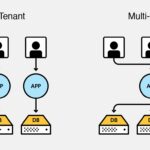In today’s rapidly evolving tech landscape, fleet cameras have emerged as an indispensable tool for fleet managers worldwide. No longer just a device to record the road ahead, these cameras now boast a range of innovative features that offer a plethora of benefits. For anyone keen on enhancing the safety, efficiency, and productivity of their fleet, understanding these advancements is crucial. Let’s delve into some of the most groundbreaking developments in fleet camera technology.
1. Advanced Analytics and AI Integration
The true power of modern fleet cameras lies in their ability to think or, more accurately, process information intelligently. With the integration of advanced analytics and artificial intelligence (AI), these devices have become smarter than ever. They don’t just record; they analyze. By recognizing patterns and identifying erratic driving behaviors like hard braking or unexpected lane changes, these systems offer real-time feedback. It’s as if the cameras have a built-in brain that understands the nuances of driving and proactively assists in promoting safer driving habits.
2. Cloud-Based Storage Solutions
Data storage and retrieval have always posed significant challenges in fleet management. Older systems that depended on physical storage devices were limited in capacity and posed challenges in data retrieval. Enter cloud-based storage solutions. By leveraging the power of the cloud, modern fleet cameras can store vast amounts of data without physical limitations. This transition is similar to moving from bulky, overflowing file cabinets to a digital database that’s organized, easily accessible, and doesn’t consume physical space.
3. Wide-Angle Lens and 360-Degree Coverage
The desire to capture everything around the vehicle has led to a revolutionary change in camera design and functionality. With the introduction of wide-angle lenses and cameras capable of 360-degree coverage, the entire vicinity of the vehicle is within the monitoring range. This comprehensive view eliminates blind spots and offers a panoramic perspective of the surroundings. Imagine having a bird’s eye view of your vehicle’s surroundings, ensuring every movement and activity is observed and recorded.
4. Enhanced Night Vision Capabilities
Driving during nighttime or in poorly lit conditions presents its own set of challenges. But with the latest advances in fleet camera technology, the veil of darkness is effectively lifted. As Geotab says, you can “capture crystal clear HD trip video with a wide range of industry-best commercial dash cams.” Improved night vision capabilities, backed by infrared sensors and advanced lens technology, ensure crystal clear recordings even in the dimmest conditions. For drivers and fleet managers, this enhancement is akin to having a high-powered flashlight illuminating the darkest pathways, ensuring every detail is captured and nothing is missed.
5. Live Streaming and Real-Time Alerts
The ability to view events as they happen has been a game-changer. Fleet managers no longer rely solely on post-trip footage reviews. With live streaming capabilities, they can monitor real-time activities, ensuring immediate insights and interventions when necessary. Additionally, with systems equipped to send instant alerts for any anomalies or safety concerns, the response time is drastically reduced. It’s akin to watching a live sports game and getting instant updates, allowing for immediate decisions and actions.
The realm of fleet camera systems is witnessing a dynamic shift driven by technological advancements and the ever-evolving demands of fleet management. These cameras are not merely passive recording devices anymore; they’ve transformed into proactive monitoring and analytical tools. As the technology continues to evolve, it’s clear that the future of fleet management will be safer, more efficient, and incredibly advanced, all thanks to these innovative camera systems.








